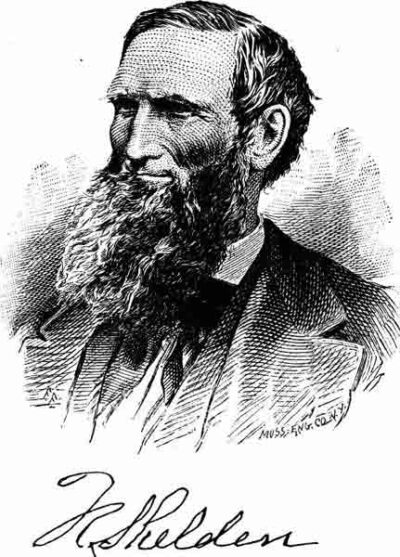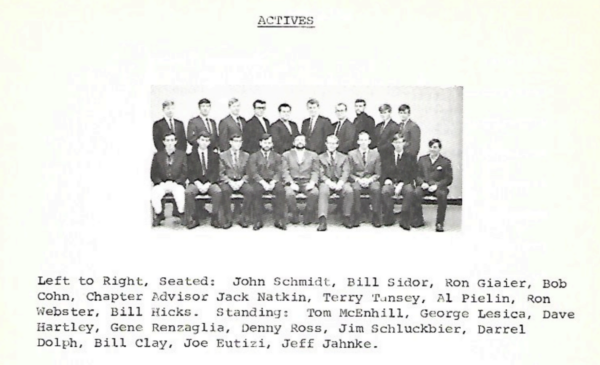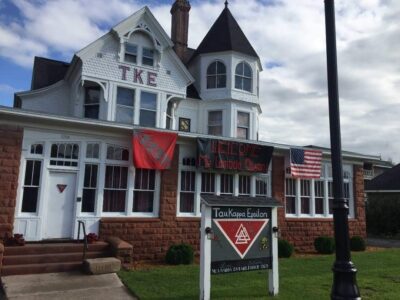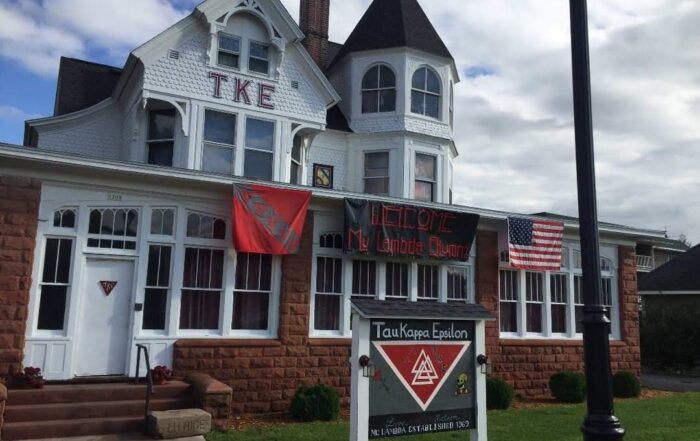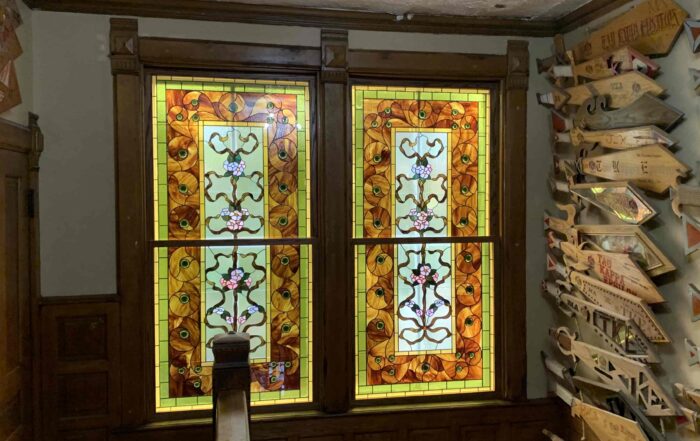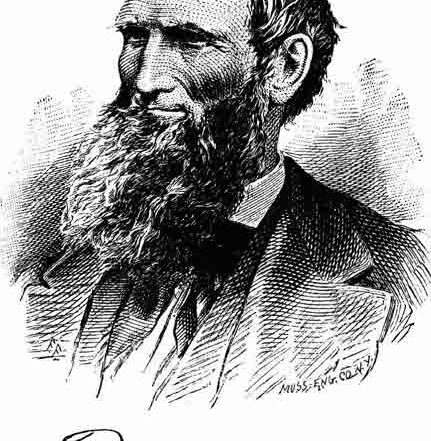Our Beginning, Growth and Development
Tau Kappa Epsilon (ΤΚΕ), commonly known as TKE or Teke, is a social college fraternity founded on January 10, 1899, at Illinois Wesleyan University. The organization has chapters throughout the United States and Canada, making it an international organization. As of fall 2017 there were 246 active TKE chapters and colonies. In 1928 TKE became one of the first fraternities to ban hazing, and also has adopted a racially inclusive policy for membership.
Mission: Our mission is to aid men in their mental, moral, and social development for life.
Vision: Tau Kappa Epsilon creates lifelong relationships that enhance educational, interpersonal, community and professional success.
Purpose: TKE contributes to the advancement of society through the personal growth of our members, and service to others.
Six Key Principles: Scholarship, Character, Leadership, Teamwork, Service and Brotherhood
On October 20, 1967, several men met in the Douglass Houghton Hall Dormitory to discuss the formation of a new fraternity on the Michigan Tech Campus. The group was unanimously in favor of affiliation with Tau Kappa Epsilon Fraternity. Soon after, on January 6, 1968, pledge pins were given to the 23 founders by the Field Supervisor T. J. Schmitz, signifying the colony’s first association with Tau Kappa Epsilon. The colony was soon recognized by the Dean of Students and as a non-voting member of the IFC. On March 28, 1969 the Teke Colony became a voting member on the IFC, as they had served one-year associate membership. On May 3rd, 1969 the chapter of Tau Kappa Epsilon – Mu Lambda was chartered, now recognized as the local chapters founder’s day.
Awards and Achievements
Ransom B. Sheldon House
In 1893, Ransom B. Shelden Jr. purchased several lots on College Avenue from his father’s copper company. By 1896, he had built this Queen Anne house for his family. However, the Sheldens lived in the house only for a short time; in 1898 Ransom Jr. sold the house to John H. Rice and moved to California. Rice was the president of the First National Bank, a founder of Houghton Chamber of Commerce in 1919, and a director of other Upper Peninsula businesses such as the Copper Range Railroad and Ontonogan’s Belt Mines. John Rice’s family owned the house until 1941. The house was resold several times, and in 1969 the Tau Kappa Epsilon fraternity purchased the home; it has since been used as a fraternity house by students at the nearby Michigan Technological University.
Due to its location just west of the university, and to the fact that commercial growth borders it, the Ransom Shelden House faced the danger of demolition, despite its architectural integrity and its historic tie to local and regional events. In 1980, plans for a highway expansion threatened its existence.
In June 1980, historians and other concerned citizens got the attention of the United States Department of Interior and the Michigan State Historic Preservation Office in order to add this prominent residence to the National Register of Historic Places. The house was placed on the National Register of Historic Places on June 18, 1980, protecting its residence from being demolished for commercial gain and to allow future generations to enjoy and learn about.
Ransom B. Sheldon Sr.
In 1852, Ransom B. Shelden Sr. arrived in Houghton, opening the first store in the area and platting the section that would become the village of Houghton in 1861. Shelden began several copper mines in the area and, in 1865, established the First National Bank of Houghton.
Ransom B. Shelden Jr. was born on June 10, 1852, the same year his father arrived in Houghton. He was the first child born of a settler in Houghton County Ransom Jr. attended both the Genesee and Mount Pleasant Military Academies in New York, then went to work for his father. He also became a clerk for the Deputy United States Collector. Shelden married Cordelia A. Paull; the couple had two sons.
